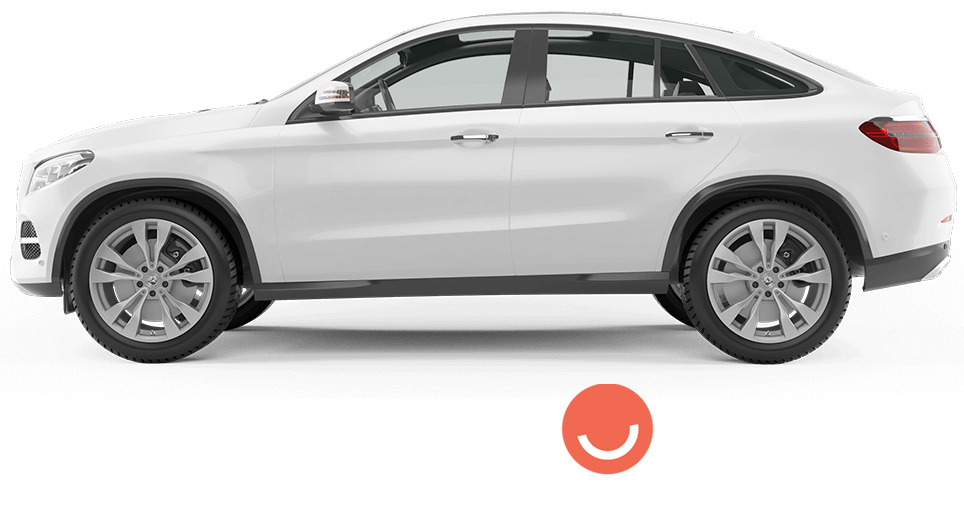What is HP car finance?
HP or hire purchase car finance is a popular type of car loan that allows you to split the cost of buying a new or used car into affordable monthly repayments. The loan is secured against the car, but when you reach the end of the agreement, you’ll become its legal owner. HP loan terms typically last between one and six years.
How car finance works through Autedia
How does hire purchase car finance work?
There are three main stages in a hire purchase car finance agreement:
- Pay a deposit
Depending on the terms of your agreement, you might need to put a deposit down upfront. This amount can be cash or by part-exchanging your existing vehicle. However, if you don’t have any savings or a car to trade in, don’t worry; no deposit options are available.
- Make monthly repayments
You’ll need to make a fixed monthly payment during your hire purchase agreement until the loan is paid. You’ll also be the car’s registered keeper, meaning you’re responsible for its upkeep, insurance, MOT, and service. However, unlike other car finance types, you probably won’t have any annual mileage restrictions.
- Become the car’s owner
Once all your repayments have been made, you’ll likely need to pay a small Option to Purchase admin fee, and then you’ll become the car’s legal owner. You can keep, modify, or sell the car whenever you like.
Why should you choose Autedia for your car finance?
What are the pros and cons of HP car finance?
There are several advantages and disadvantages to HP car finance:
Pros
- You’ll become the car’s owner at the end of the agreement
- You won’t have to worry about staying within an annual mileage limit
- You don’t have to pay a large balloon payment at the end of the loan to own the car
- This type of loan can be available to people with bad credit scores
Cons
- You can’t modify or sell the car during the agreement
- You’re responsible for all the car’s maintenance costs
- If you don’t keep up with your repayments, the car could be repossessed
- Your monthly payments can be higher than other types of car finance
Car Finance Calculator
| Total cost of credit | 2,125.46 |
|---|---|
| Total repayment | 8,625.46 |
| 60 monthly payments of | £14376 |
Rates from 8.9% APR: the exact rate you will be offered will be based on your circumstances, subject to status.
Representative example: borrowing £6,500 over 5 years with a representative APR of 19.9%, an annual interest rate of 19.9% (Fixed) and a deposit of £0.00, the amount payable would be £143.76 per month, with a total cost of credit of £2125.46 and a total amount payable of £8625.46.
What happens at the end of an HP agreement?
If you’ve kept up with all your monthly repayments, you’ll become the car’s legal owner at the end of an HP agreement. There might be a small admin fee to pay – known as the Option to Purchase fee – but once paid, you’ll officially own the car.
Can I get an HP deal with bad credit?
Yes, you could get an HP deal with bad credit. No matter whether you’ve missed payments in the past, had a CCJ, or been in an IVA, hire purchase deals are often available to people with poor credit scores as the loan is secured against the car. Some lenders specialise in offering bad credit car finance. At Autedia, we work with a panel of lenders and can help find an HP deal for people with a wide variety of different circumstances, even if you’ve been refused elsewhere.
Who owns the car in a hire purchase agreement?
The lender will own the car throughout your loan term in a hire purchase agreement, but you’ll be its registered keeper. You’ll need to pay for the car’s maintenance costs, fuel, insurance, MOT, and service, but you won’t be able to sell or modify it. However, if you keep up with all your repayments and pay the Option to Purchase fee at the end of your agreement, you’ll become the car’s legal owner.
My monthly budget is
Rates from 8.9% APR. Representative APR 19.9%
HP vs PCP
PCP or personal contract purchase deals work a lot like HP deals, but the big difference is that they don’t necessarily lead to car ownership. Instead, when you reach the end of a PCP loan, you can choose to hand the car back to the lender, use any positive equity as a deposit in a new deal, or buy the car by paying a one-off balloon payment.
Another key difference when choosing between HP and PCP is that you don’t need to borrow the car’s full purchase price in a PCP deal. You’ll only borrow the value the lender believes the car will lose during your loan term, meaning your monthly payments can be lower. Even so, PCP deals typically come with an annual mileage restriction, and the balloon payment you’ll need to pay to become the car’s owner can cost several thousands of pounds.
HP vs Leasing
If car ownership isn’t important, leasing might be a better option than an HP deal. Unlike hire purchase, with a leasing or personal contract hire (PCH) agreement, you’re not working towards owning the car. You’ll pay a fixed monthly amount to lease the car for one to four years, and then, once you reach the end of the lease term, you’ll simply hand the car back and walk away. Keep in mind, though, that lease deals often come with annual mileage restrictions, and you may have to pay extra charges if the car is damaged beyond standard wear and tear.
HP vs Personal Car Loans
A personal car loan is like an HP deal in that it leads to car ownership, but instead of being secured against the car, most personal loans are unsecured. You’ll be its legal owner when you use your loan to buy the car. If you keep up with your repayments throughout the loan term, you can modify the car, drive long distances, or sell it if you like. However, as unsecured loans pose more of a risk to lenders, this type of finance is usually only available for people with good credit scores.
My monthly budget is
Rates from 8.9% APR. Representative APR 19.9%
How much does HP cost?
The total cost of an HP deal will depend on the deposit you put down and your monthly payment amount.
Your monthly payment can be affected by:
- The loan size – the more you borrow, the higher your payments will likely be.
- The loan term – a longer loan term often comes with lower repayments, but you could pay more in interest overall.
- The loan APR is the amount of interest you’ll pay each year during your loan term and is calculated using several factors, including your credit score.
To get an estimate of what your HP monthly repayments might look like, check out our free online car finance calculator.
How to find the right hire purchase deal for you
The right hire purchase deal will fit your budget and allow you to buy a car that will fulfil your needs. Working with a car finance broker like Autedia can help, as we’ll always look to find you the best deal from our panel of lenders. You can also get a no-obligation quote in minutes.
Before signing on the bottom line of any car finance deal, it’s worth looking at:
- Your budget – work out how much you can comfortably afford to pay each month. A car finance agreement is a long-term commitment, and you could be required to make the same monthly payment for the next six years, even if your personal circumstances change.
- Your agreement terms and conditions – double-check precisely how much you’ll be paying in interest, the total amount you’ll have repaid by the end of the loan term, and whether any early repayment charges will apply if you choose to end the agreement ahead of time.
Your credit score – while your credit score isn’t the only factor that lenders consider, a good score could help you secure a better interest rate or improve your eligibility. It’s good practice to check your score and take steps to improve it before applying for a hire purchase deal.
FAQs – HP Car Finance
Getting a car finance quote with Autedia won’t affect your credit score. We’ll carry out a soft credit check to double-check your eligibility, but a hard credit check (that could affect your score) will only take place if you decide to proceed with a loan option.
- Proof of address – such as a utility bill or Council Tax statement
- Proof of income – such as recent payslips or bank statements
- Proof of ID – such as a driving licence or passport
- Settle your finance early
You can request a settlement figure from your lender at any time. You’ll need to pay this figure to end the agreement early and become the car’s legal owner. It’ll typically be made up of your outstanding repayments minus any future interest. An early settlement charge may also apply.
- Opt for voluntary termination
Under the Consumer Credit Act 1974, you have the right to voluntary termination once you’ve paid at least 50% of the total amount repayable on your loan. If you’ve not yet reached this threshold, you can choose to pay the difference. Opting for voluntary termination means you’ll hand the car back to the lender and walk away.
You may be able to find a new deal with a new lender with a lower interest rate or a longer loan term that will give you more affordable monthly repayments.
- Opt for voluntary termination
If you’ve already paid 50% of the total amount repayable on the loan, you can simply hand the car back to the lender and walk away.
- Negotiate with the lender
Your lender may be willing to negotiate a compromise, such as offering a short payment break or suspending extra charges until you get back on track.
- Default on the loan
If you can’t make your repayments and end up defaulting on the loan, the lender can take steps to repossess the car. It’s also worth noting that defaults will be marked on your credit report and could make it difficult for you to get finance in the future.










